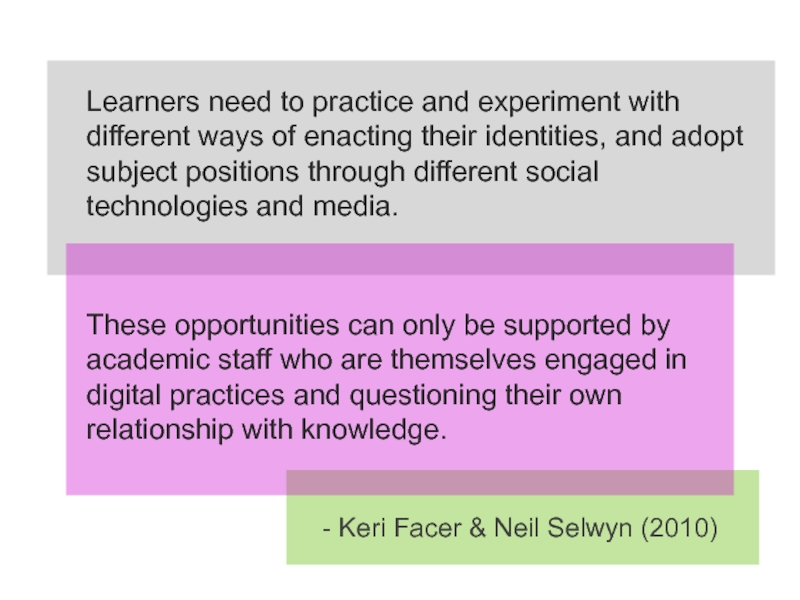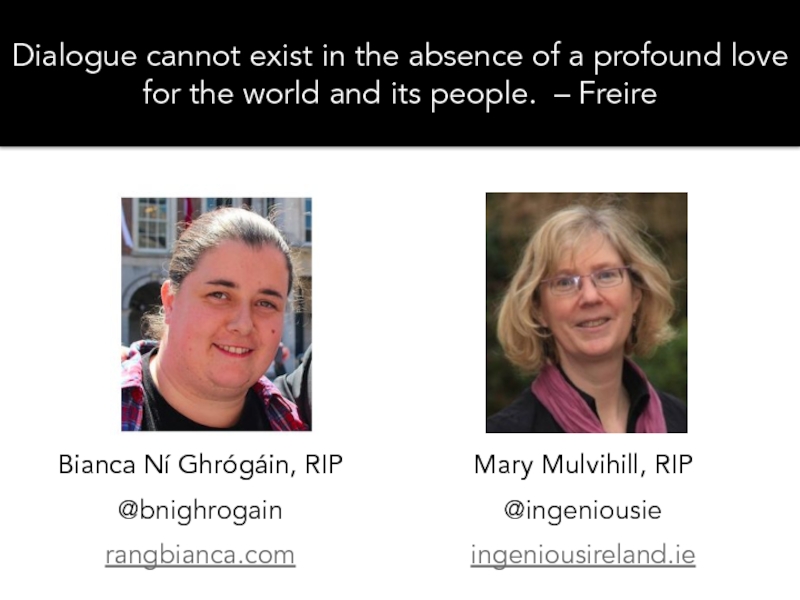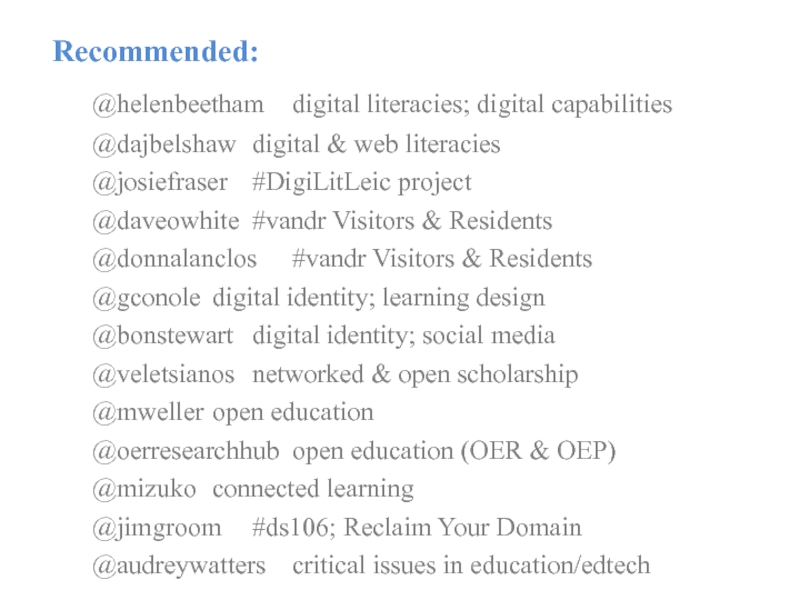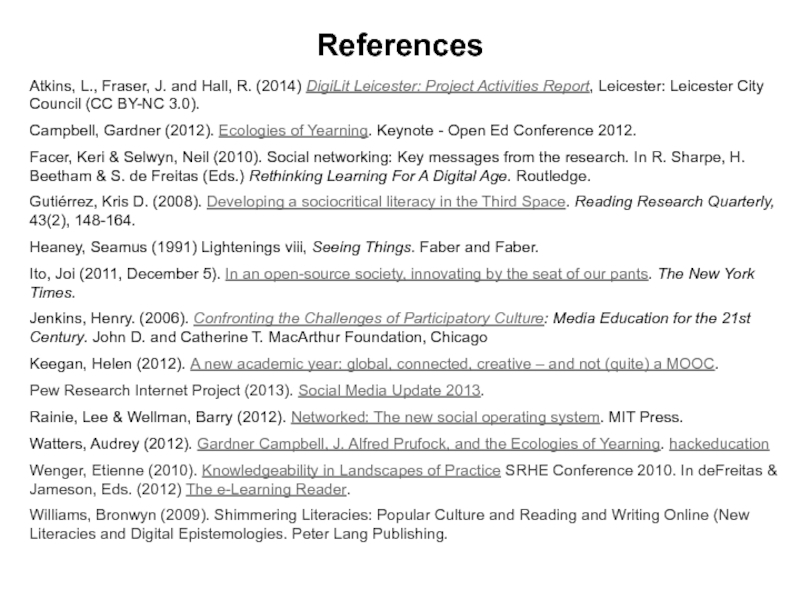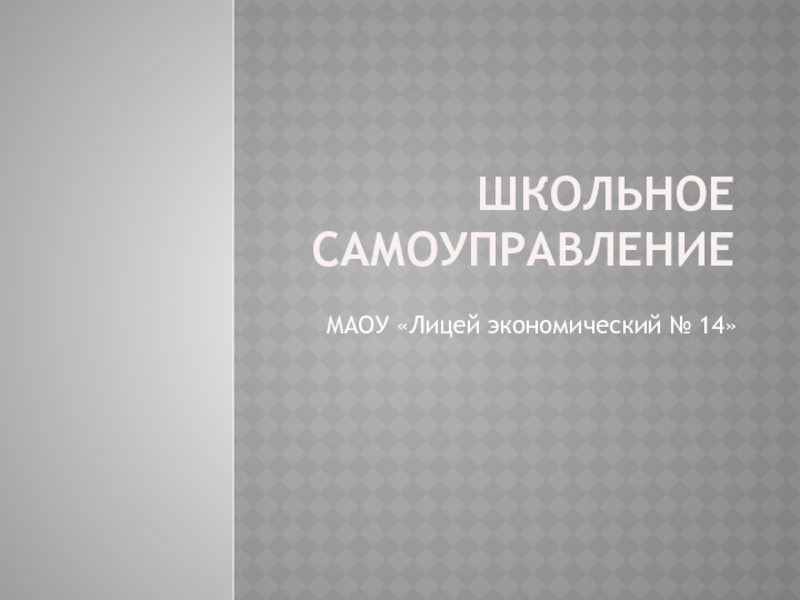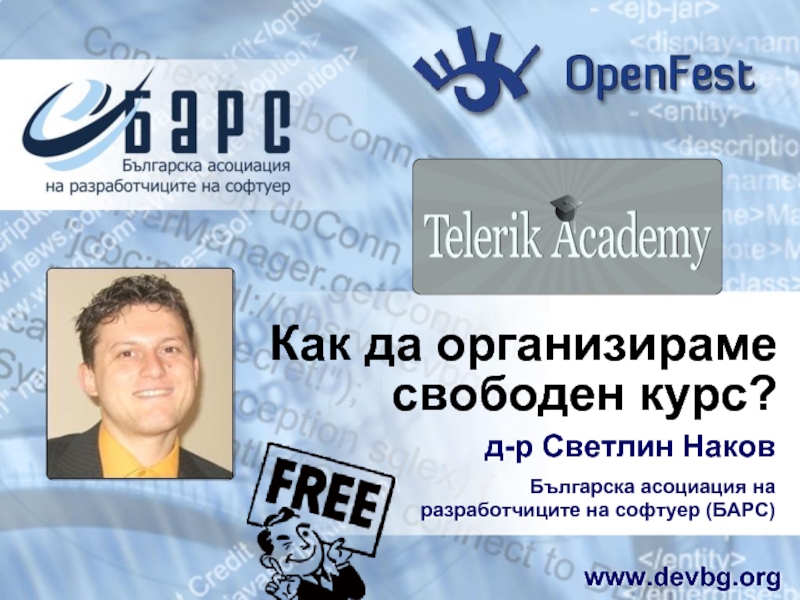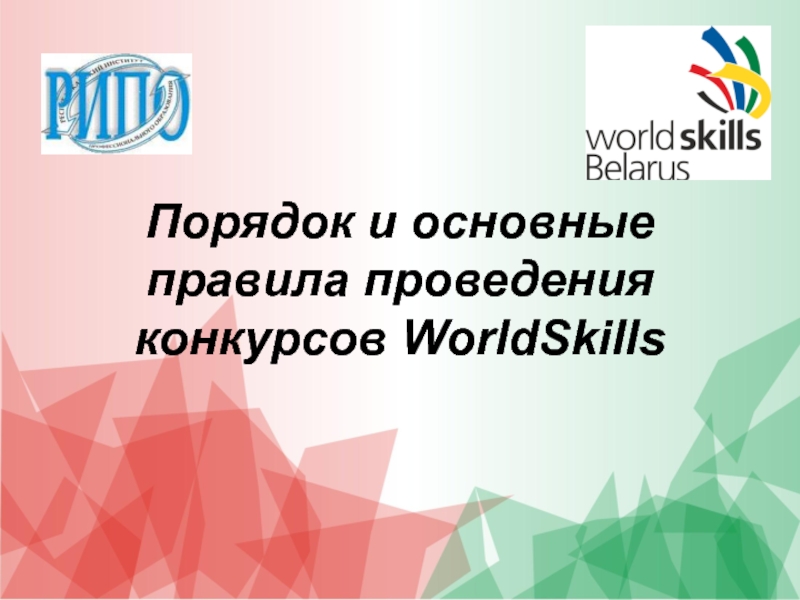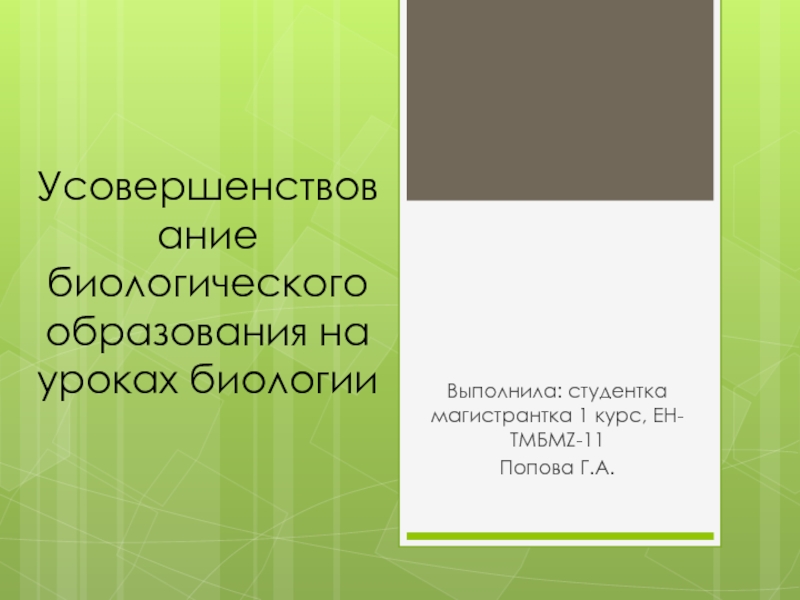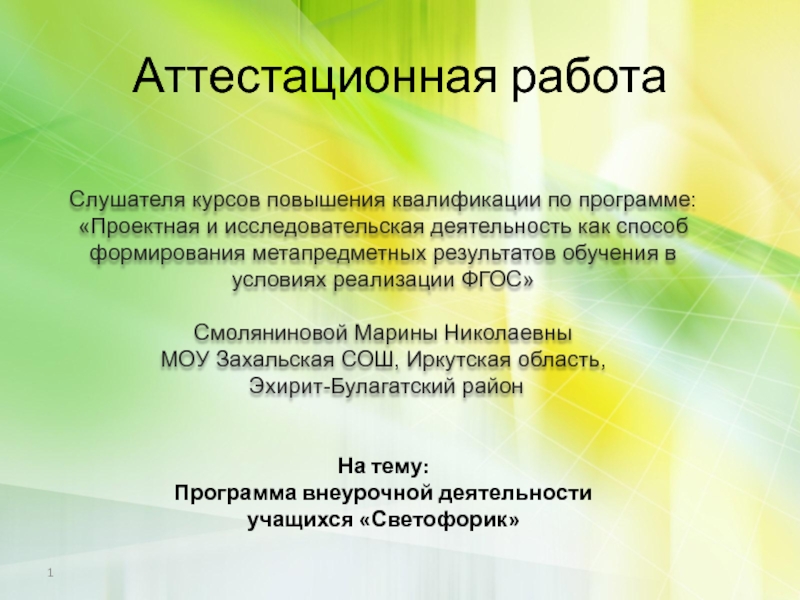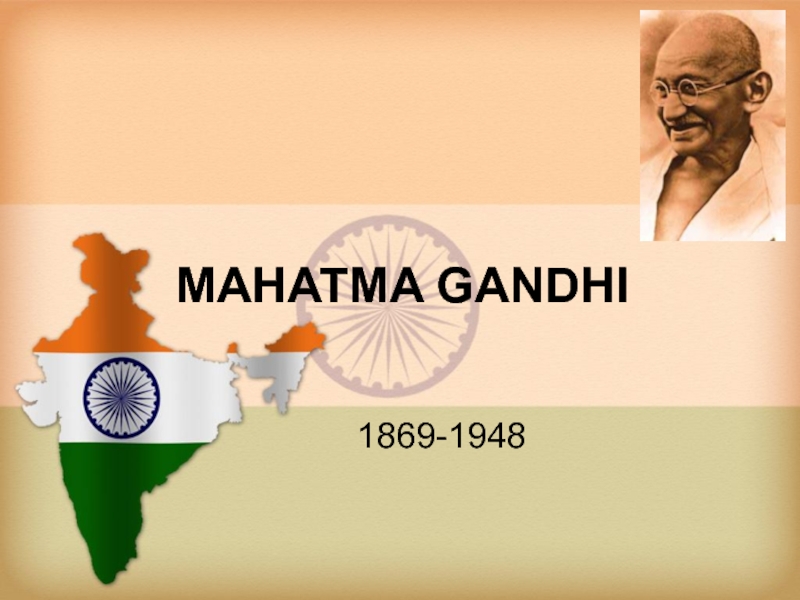- Главная
- Разное
- Дизайн
- Бизнес и предпринимательство
- Аналитика
- Образование
- Развлечения
- Красота и здоровье
- Финансы
- Государство
- Путешествия
- Спорт
- Недвижимость
- Армия
- Графика
- Культурология
- Еда и кулинария
- Лингвистика
- Английский язык
- Астрономия
- Алгебра
- Биология
- География
- Детские презентации
- Информатика
- История
- Литература
- Маркетинг
- Математика
- Медицина
- Менеджмент
- Музыка
- МХК
- Немецкий язык
- ОБЖ
- Обществознание
- Окружающий мир
- Педагогика
- Русский язык
- Технология
- Физика
- Философия
- Химия
- Шаблоны, картинки для презентаций
- Экология
- Экономика
- Юриспруденция
OPENNESS IN HIGHER EDUCATION: Choosing Our Paths презентация
Содержание
- 1. OPENNESS IN HIGHER EDUCATION: Choosing Our Paths
- 2. @catherinecronin #tlfest15 slideshare.net/cicronin
- 3. Image: CC BY 2.0 dlofink
- 4. Social Networks Internet Mobile Networked Individualism
- 5. 2005 2013 Source: Pew Research Center’s Internet & American Life Project, 2005-2013
- 6. Image: CC BY-NC-SA 2.0 Alec Couros Networked Teacher
- 7. What is your NETWORK? (digital & otherwise)
- 8. about.me/catherinecronin
- 9. Participatory Culture: Henry Jenkins @henryjenkins henryjenkins.org
- 10. #marref Twitter photo: @HelenORahilly
- 11. #marref
- 12. #marref @joecaslin • joecaslin.com
- 13. #marref @joecaslin • joecaslin.com
- 14. #marref @hendinarts
- 15. #marref
- 16. #HOMETOVOTE @anniewestdotcom
- 17. #HOMETOVOTE
- 18. #HOMETOVOTE
- 19. #HOMETOVOTE
- 20. #HOMETOVOTE
- 21. trendsmap.com/v2/xm4X/w
- 22. multimodal multimedia ✓ voice / choice networked ✓ topic
- 23. Image: CC BY 2.0 DeeAshley a
- 24. V&R Framework 15/07/2014 Evaluating online behaviours |
- 25. …furtive thinking and behaviour around open-web resources
- 26. Seamus Heaney Lightenings viii - video by Eoghan Kidney vimeo.com/4831035
- 27. 3 contributions to the dialogue
- 28. #1 develop, model & embed digital literacies
- 29. Networked Educators Networked Students Physical Spaces Bounded Online Spaces Open Online Spaces
- 30. A learning space not THE learning space
- 31. so…. HOW?
- 33. WHAT would YOU like to create?
- 34. Image: CC BY NC-SA 2.0 catherinecronin
- 35. @CT231 #ct231
- 38. We’re now looking at the ‘tag-team model’
- 39. #icollab TAGSExplorer thanks to @mhawksey
- 40. Individuals, students and educators, can be
- 41. I learned a lot more about writing
- 42. Before studying it, I used Facebook and
- 43. #1 develop, model & embed digital literacies
- 44. #1 develop, model & embed digital literacies
- 45. Image: CC BY-ND Bryan Mathers Ref:
- 46. by Helen Beetham http://digitalcapability.jiscinvolve.org/wp/2015/06/11/revisiting-digital-capability-for-2015/
- 47. Image: CC BY-NC-ND 2.0 Frederic Poirot digital identity
- 48. CC BY-NC-SA 2.0 Frank Wuestefeld privacy
- 49. http://umwdomains.com/
- 50. Image CC BY 2.0 vramek #2 choose open where possible & appropriate
- 51. Image: CC BY-SA 2.0 Marcel Oosterwijk
- 52. Image: CC BY-SA 2.0 Marcel Oosterwijk
- 53. Gardner Campbell – Ecologies of Yearning
- 54. Reclaim Open Learning “Showcases innovation that
- 55. http://open.media.mit.edu/ Reclaim Open Learning Challenge 2013
- 56. Slide: CC-BY-SA catherinecronin Image: CC BY-NC-SA 2.0 yobink #3 connect across boundaries
- 57. “I don’t think education is about centralized
- 58. Networked Educators Networked Students Physical Spaces Bounded Online Spaces Open Online Spaces
- 59. Learners need to practice
- 60. Bianca Ní Ghrógáin, RIP @bnighrogain rangbianca.com
- 61. Thank you! Catherine Cronin @catherinecronin about.me/catherinecronin slideshare.net/cicronin Image: CC BY 2.0 visualpanic
- 62. Recommended: @helenbeetham digital literacies; digital capabilities @dajbelshaw digital
- 63. References Atkins, L., Fraser, J. and Hall,
Слайд 1
OPENNESS IN HIGHER EDUCATION:
Choosing Our Paths
Catherine Cronin • @catherinecronin •
#tlfest15 • 12th June 2015
Слайд 4
Social Networks
Internet
Mobile
Networked Individualism
Rainie, L. & Wellman, B.(2012) Networked: The New Social
Слайд 9Participatory Culture:
Henry Jenkins
@henryjenkins
henryjenkins.org
low barriers to
artistic expression & civic engagement
strong
social connection
members believe their contributions matter
informal mentorship
Слайд 22multimodal
multimedia ✓ voice / choice
networked ✓ topic / content
social ✓ genre / tone
purposeful ✓ space
collaborative ✓ time / duration
agentic
Participatory Culture
literacy practices
Слайд 23Image: CC BY 2.0 DeeAshley
a divide between formal and informal learning:
Слайд 24V&R Framework
15/07/2014
Evaluating online behaviours | A visitors and residents approach
(White and
#vandr
Visitors and Residents resources http://goo.gl/vxUMRD
by Lynne Connaway, David White & Donna Lanclos
http://www.slideshare.net/oclcr/evaluating-online-behaviours-a-visitors-and-residents-approach
Слайд 25…furtive thinking and behaviour around open-web resources such as Wikipedia masks
David White, Lynn S. Connaway,
Donna Lanclos, Erin M. Hood & Carrie Vass
Evaluating digital services: a Visitors and Residents approach, JISC InfoNet
“
Слайд 28#1 develop, model & embed
digital literacies
#2 choose open
where possible & appropriate
#3
across boundaries
Слайд 38We’re now looking at the ‘tag-team model’ of education: the projects
Increasingly, students are connecting across levels and cohorts through Twitter and now we have ex-students getting together with current students, undergrads coming to postgrad classes (and vice versa) as they’ve connected online and have a genuine interest in getting involved in other groups/further curricula outside of their taught modules.”
#icollab
Helen Keegan (2012)
@heloukee
“
Слайд 40Individuals, students and educators,
can be nodes in a network.
Groups
also can be nodes, e.g. via #hashtags.
Слайд 41I learned a lot more about writing to the public. Before
By posting publicly it opened up our world to other academics or people who are just interested in the topic... I don’t think anyone would have thought that the author of one of the works we were researching would get involved.
#studentvoice
openness...
“
“
Слайд 42Before studying it, I used Facebook and Twitter mainly just for
They are places to discover new information and boost your knowledge. That both education and socialising can be rolled into one.
#studentvoice
social networks...
“
“
Слайд 43#1 develop, model & embed
digital literacies
#2 choose open
where possible & appropriate
#3
across boundaries
Слайд 45
Image: CC BY-ND Bryan Mathers
Ref: White, Connaway, Lanclos, Hood & Vass
Evaluating
Слайд 46by Helen Beetham
http://digitalcapability.jiscinvolve.org/wp/2015/06/11/revisiting-digital-capability-for-2015/
Слайд 51Image: CC BY-SA 2.0 Marcel Oosterwijk
…’open’ signals a broad, de-centralized
– Bonnie Stewart (2015)
Слайд 52Image: CC BY-SA 2.0 Marcel Oosterwijk
OEP
(Open Educational Practices)
?
OER
(Open
?
Free
?
Open Admission (e.g. Open University)
DEFINITIONS of ‘OPEN’
Culture
?
Values
?
Practices
?
Activities
LEVELS of OPENNESS
Слайд 53Gardner Campbell – Ecologies of Yearning
youtube.com/watch?v=kIzA4ItynYw
Openness [is] process, not
Audrey Watters (2012)
“
Слайд 54Reclaim Open Learning
“Showcases innovation that brings together the
best of
http://open.media.mit.edu/
Слайд 55http://open.media.mit.edu/
Reclaim Open Learning Challenge 2013
digilitleic.com
#DigiLitLeic
phonar.org
@phonar
ds106.us
#ds106
jaaga.in
@jaagarnaut
femtechnet.org
@FemTechNet
Слайд 57“I don’t think education is about centralized instruction anymore; rather, it
– Joi Ito @joi
Slide: CC-BY-SA catherinecronin Image: CC BY-NC-SA 2.0 yobink
Слайд 59
Learners need to practice and experiment with different ways of enacting
These opportunities can only be supported by academic staff who are themselves engaged in digital practices and questioning their own relationship with knowledge.
- Keri Facer & Neil Selwyn (2010)
Слайд 60Bianca Ní Ghrógáin, RIP
@bnighrogain
rangbianca.com
Mary Mulvihill, RIP
@ingeniousie
ingeniousireland.ie
Dialogue cannot exist in
Слайд 61Thank you!
Catherine Cronin
@catherinecronin
about.me/catherinecronin
slideshare.net/cicronin
Image: CC BY 2.0 visualpanic
Слайд 62
Recommended:
@helenbeetham digital literacies; digital capabilities
@dajbelshaw digital & web literacies
@josiefraser #DigiLitLeic project
@daveowhite #vandr Visitors & Residents
@donnalanclos #vandr
@gconole digital identity; learning design
@bonstewart digital identity; social media
@veletsianos networked & open scholarship
@mweller open education
@oerresearchhub open education (OER & OEP)
@mizuko connected learning
@jimgroom #ds106; Reclaim Your Domain
@audreywatters critical issues in education/edtech
Слайд 63References
Atkins, L., Fraser, J. and Hall, R. (2014) DigiLit Leicester: Project
Campbell, Gardner (2012). Ecologies of Yearning. Keynote - Open Ed Conference 2012.
Facer, Keri & Selwyn, Neil (2010). Social networking: Key messages from the research. In R. Sharpe, H. Beetham & S. de Freitas (Eds.) Rethinking Learning For A Digital Age. Routledge.
Gutiérrez, Kris D. (2008). Developing a sociocritical literacy in the Third Space. Reading Research Quarterly, 43(2), 148-164.
Heaney, Seamus (1991) Lightenings viii, Seeing Things. Faber and Faber.
Ito, Joi (2011, December 5). In an open-source society, innovating by the seat of our pants. The New York Times.
Jenkins, Henry. (2006). Confronting the Challenges of Participatory Culture: Media Education for the 21st Century. John D. and Catherine T. MacArthur Foundation, Chicago
Keegan, Helen (2012). A new academic year: global, connected, creative – and not (quite) a MOOC.
Pew Research Internet Project (2013). Social Media Update 2013.
Rainie, Lee & Wellman, Barry (2012). Networked: The new social operating system. MIT Press.
Watters, Audrey (2012). Gardner Campbell, J. Alfred Prufock, and the Ecologies of Yearning. hackeducation
Wenger, Etienne (2010). Knowledgeability in Landscapes of Practice SRHE Conference 2010. In deFreitas & Jameson, Eds. (2012) The e-Learning Reader.
Williams, Bronwyn (2009). Shimmering Literacies: Popular Culture and Reading and Writing Online (New Literacies and Digital Epistemologies. Peter Lang Publishing.
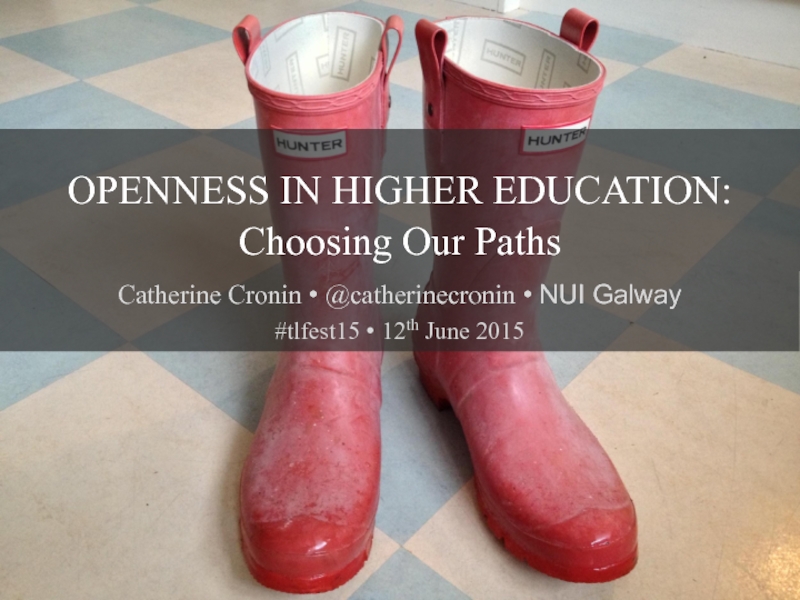
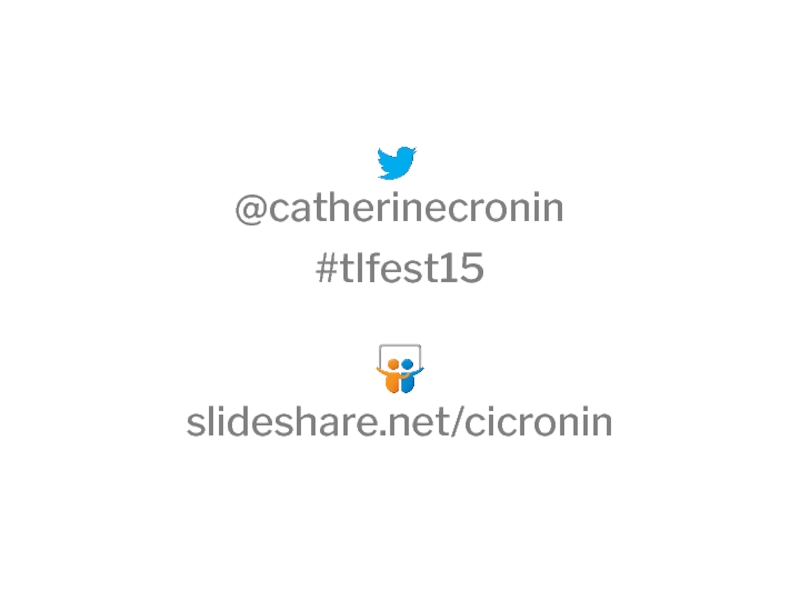
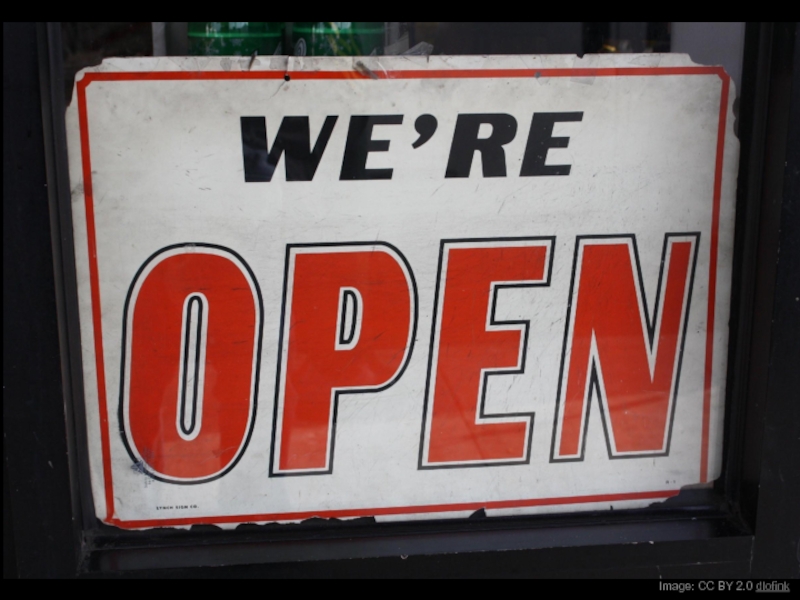

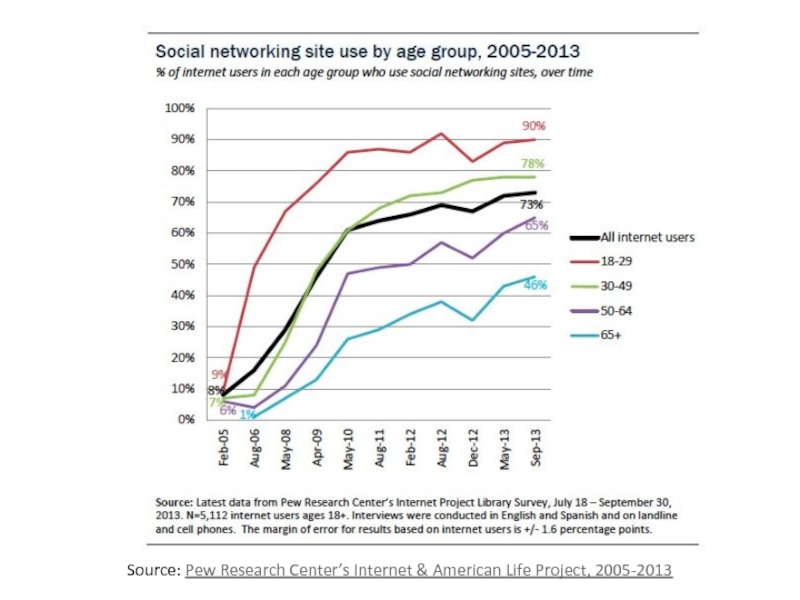
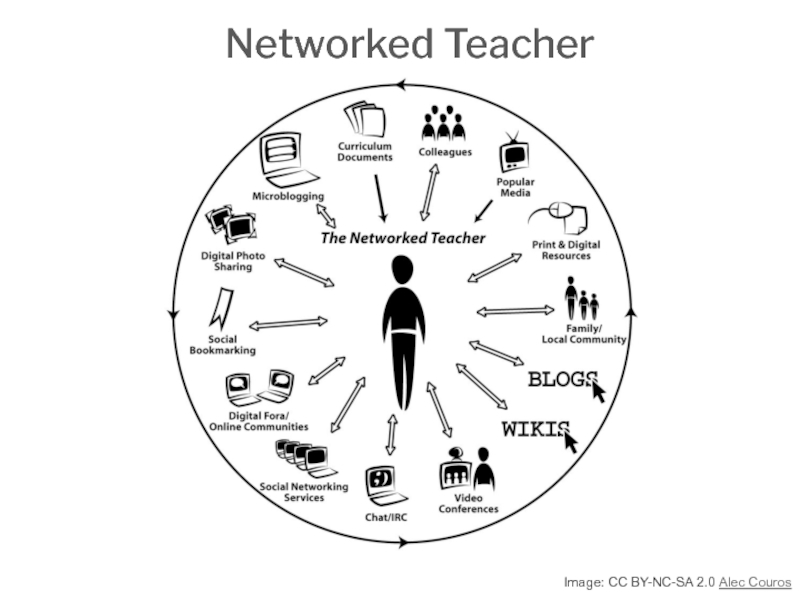

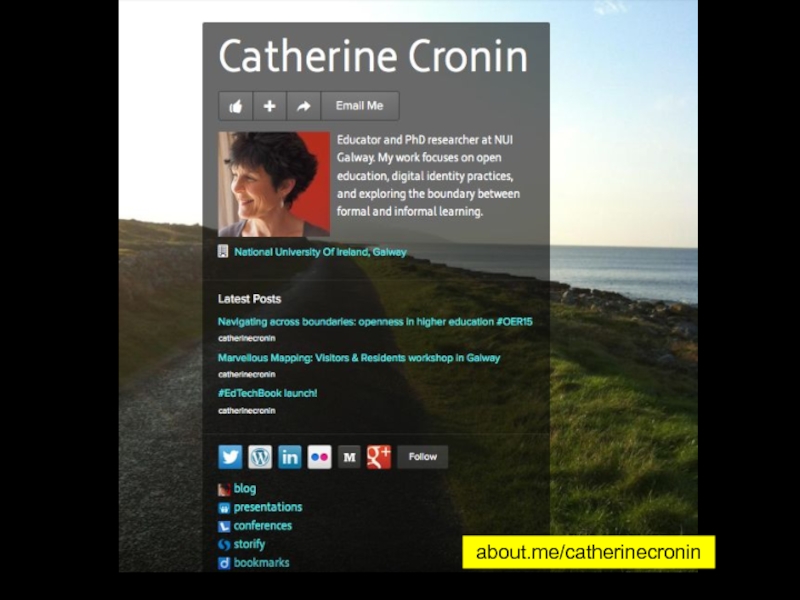
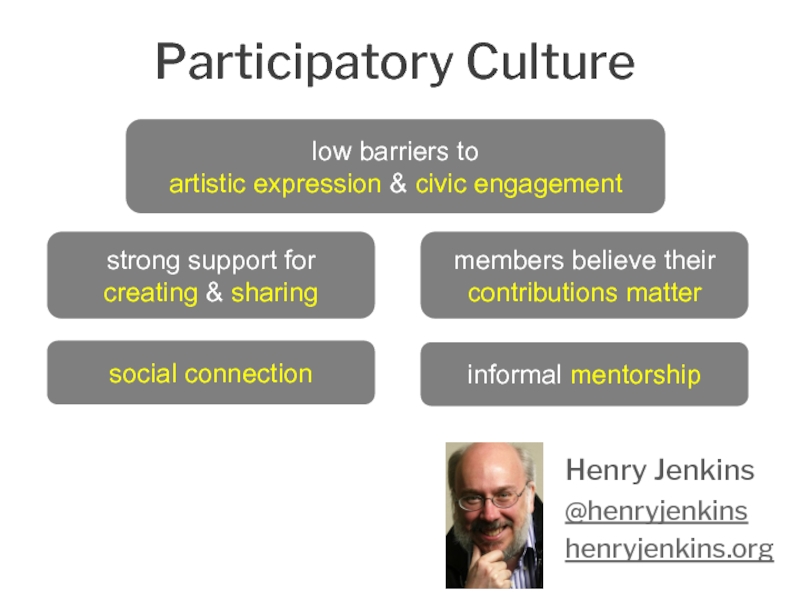
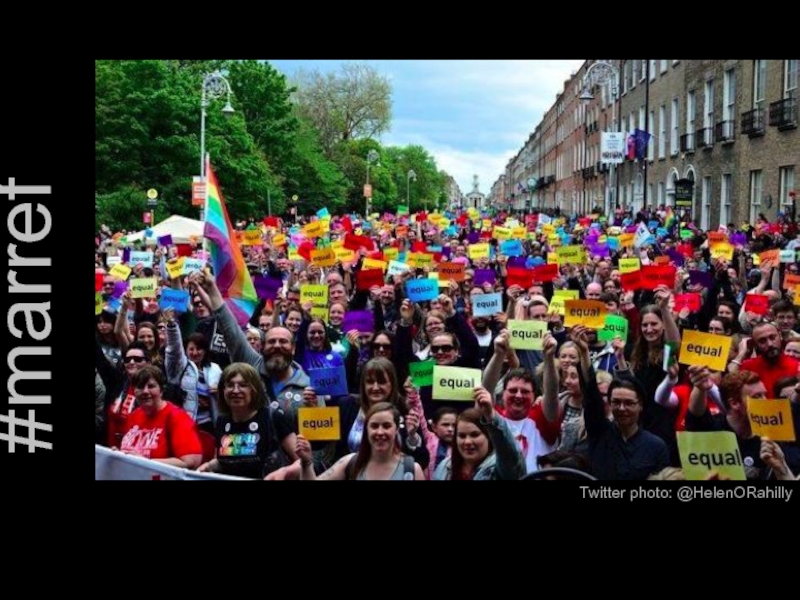
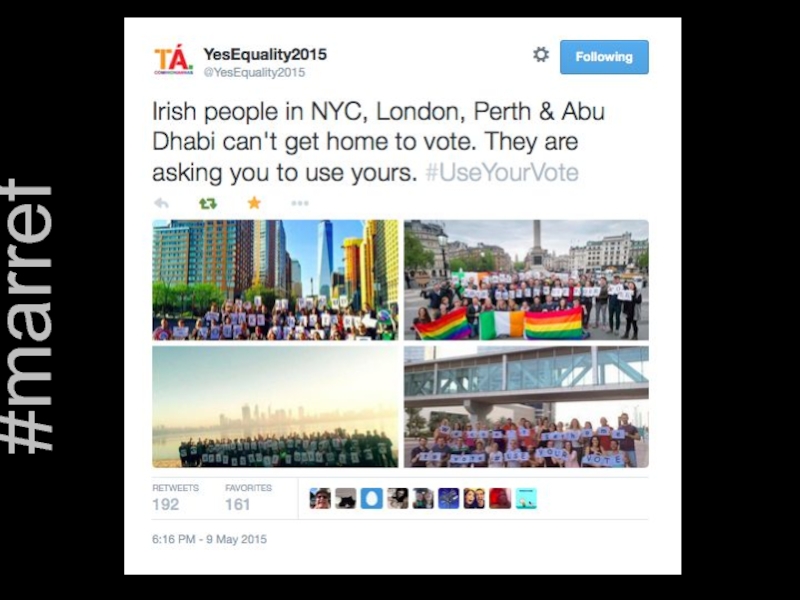
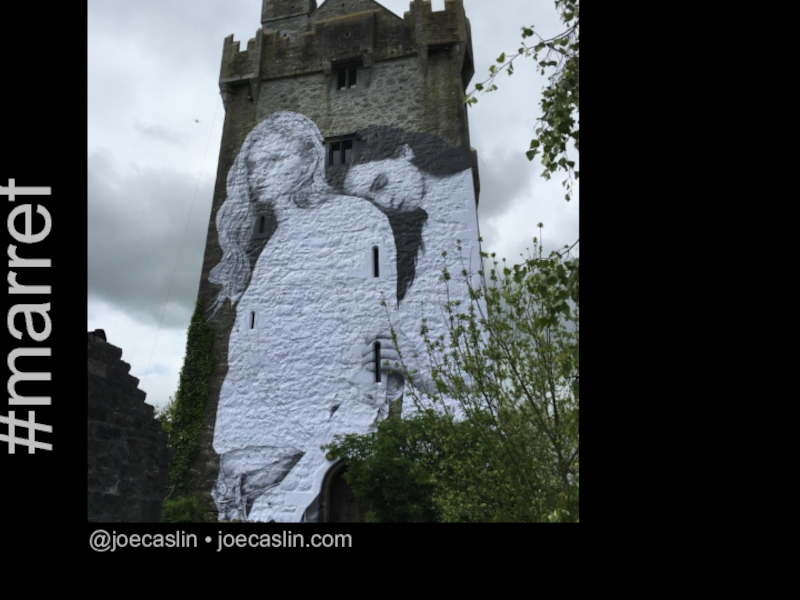
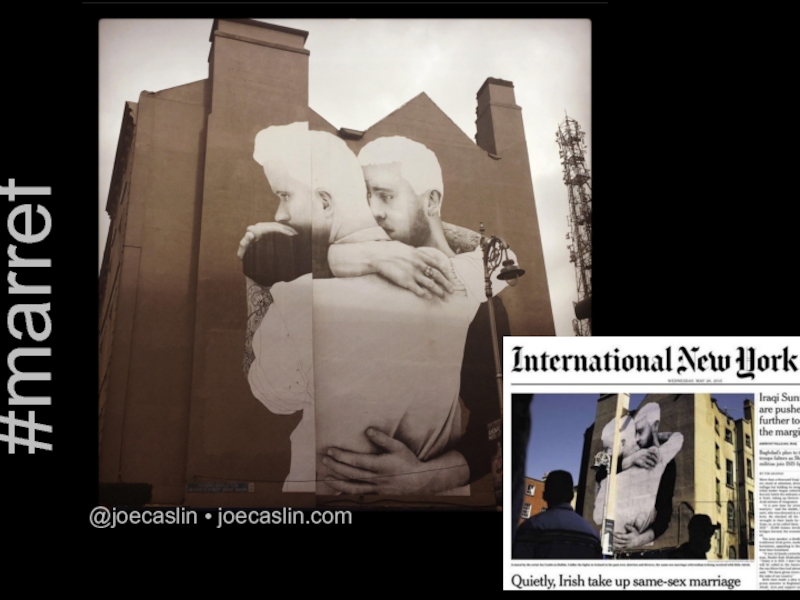

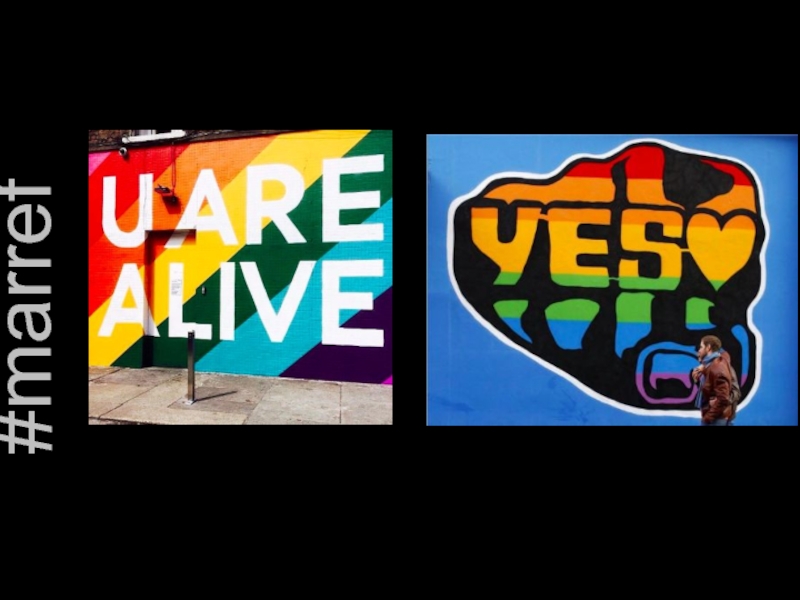
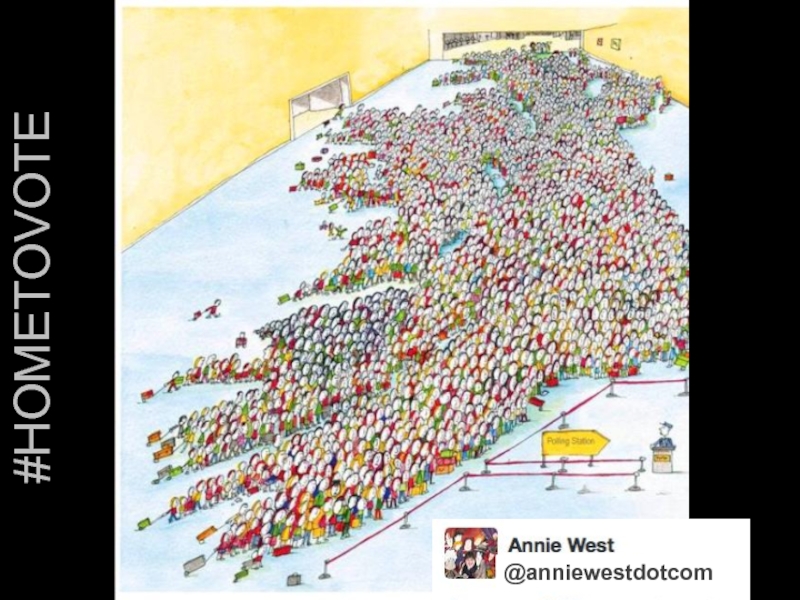
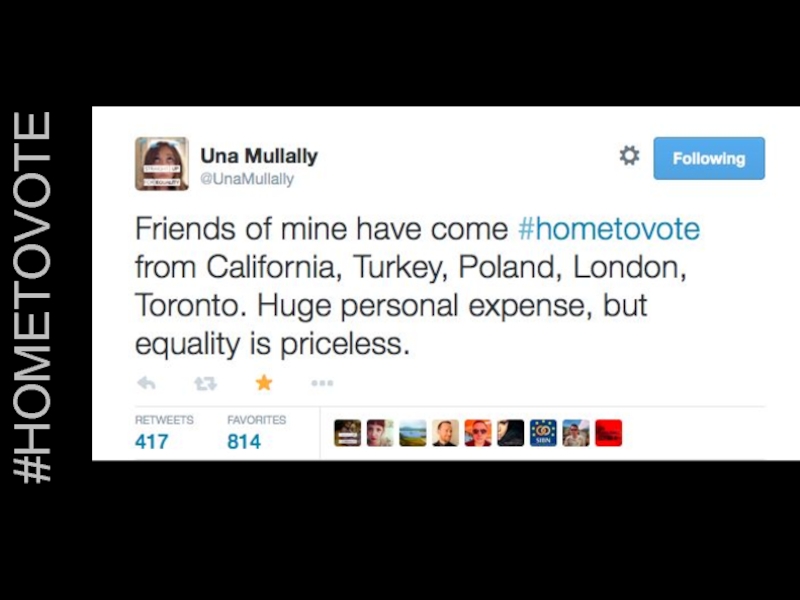
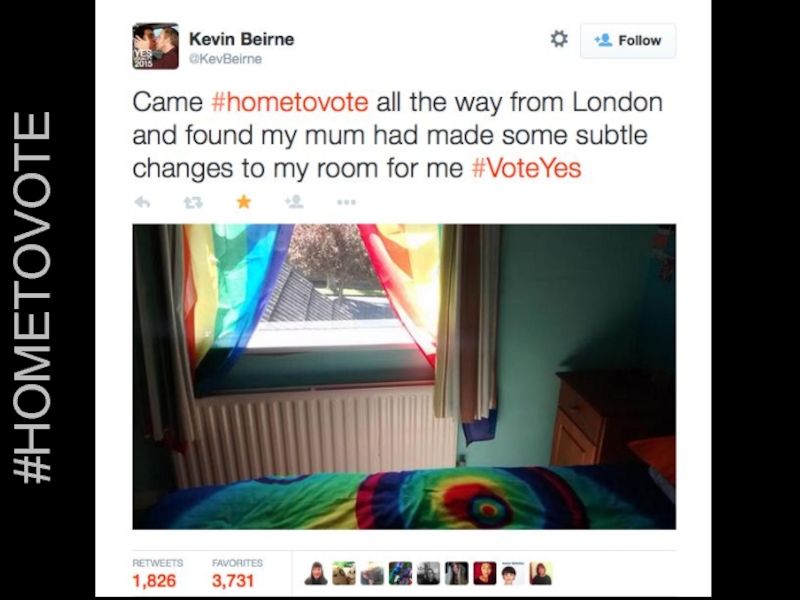
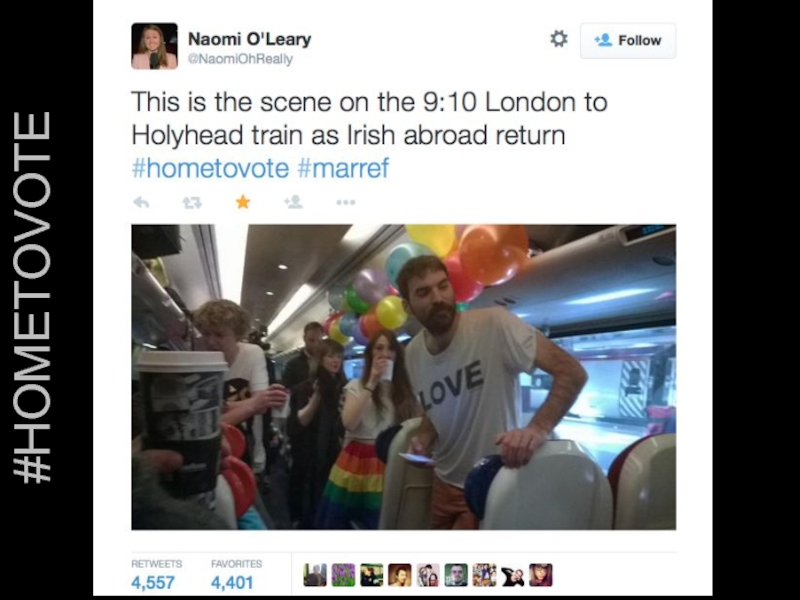
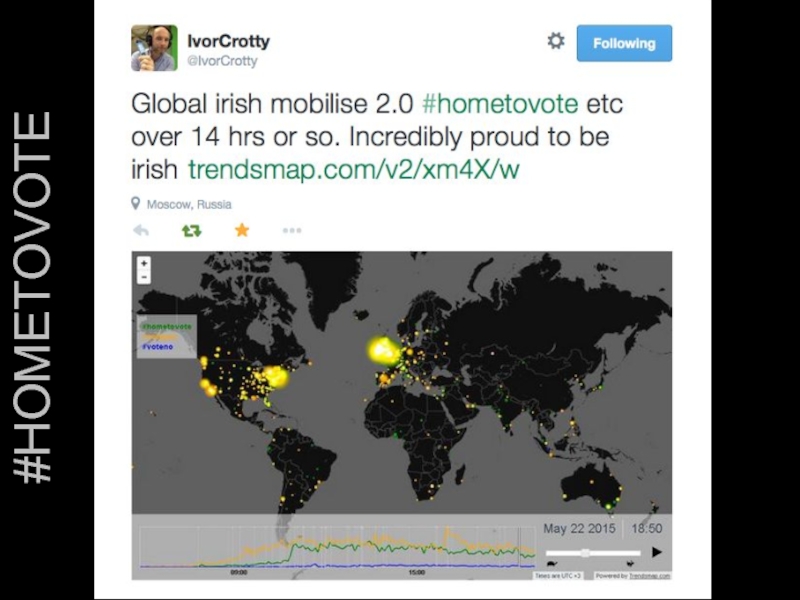
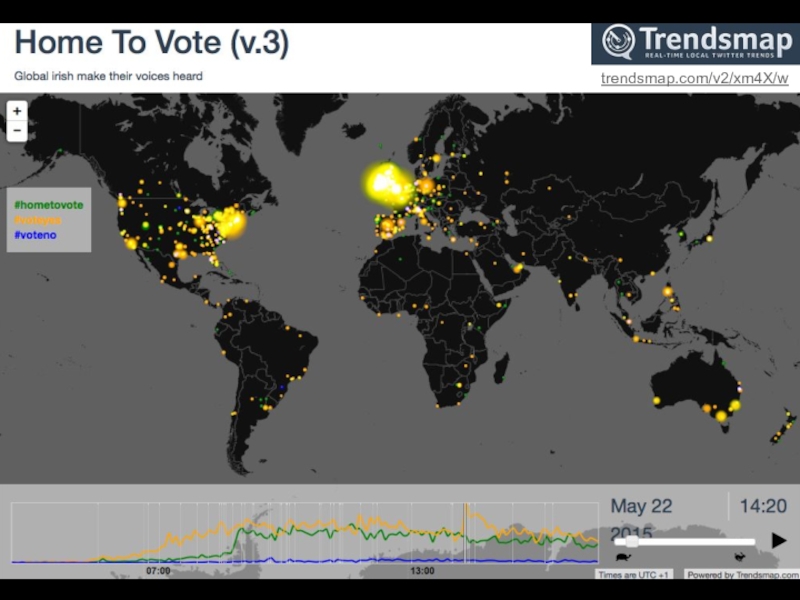
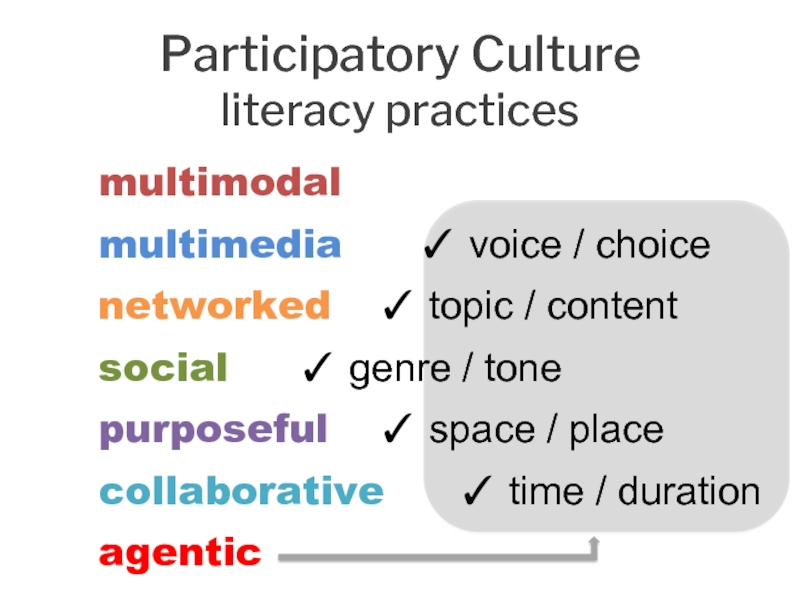
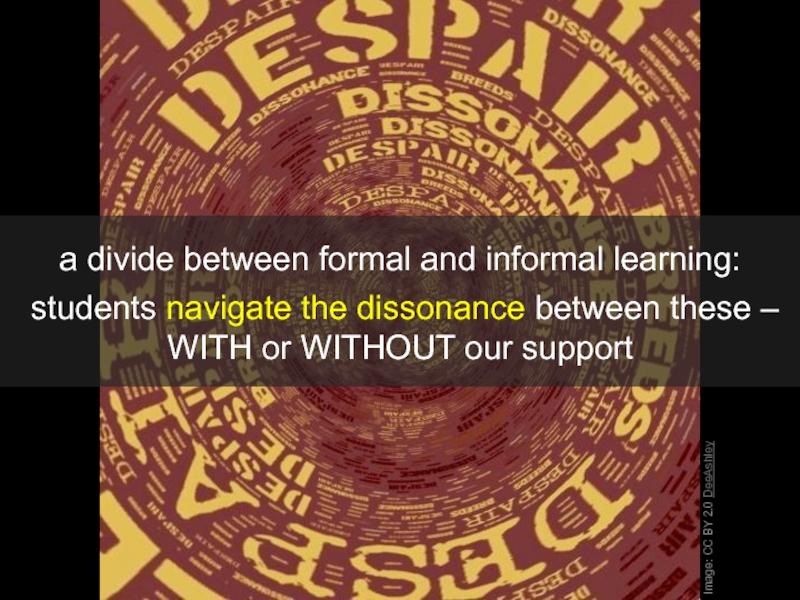
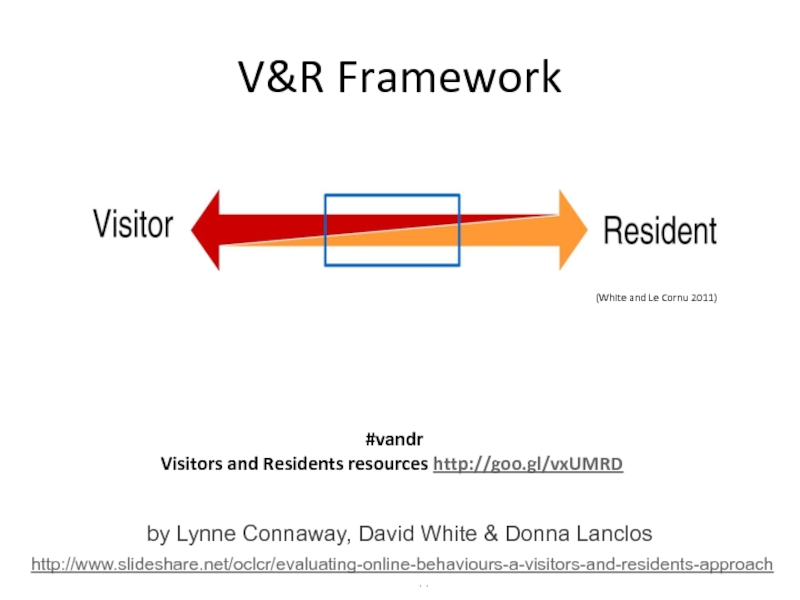
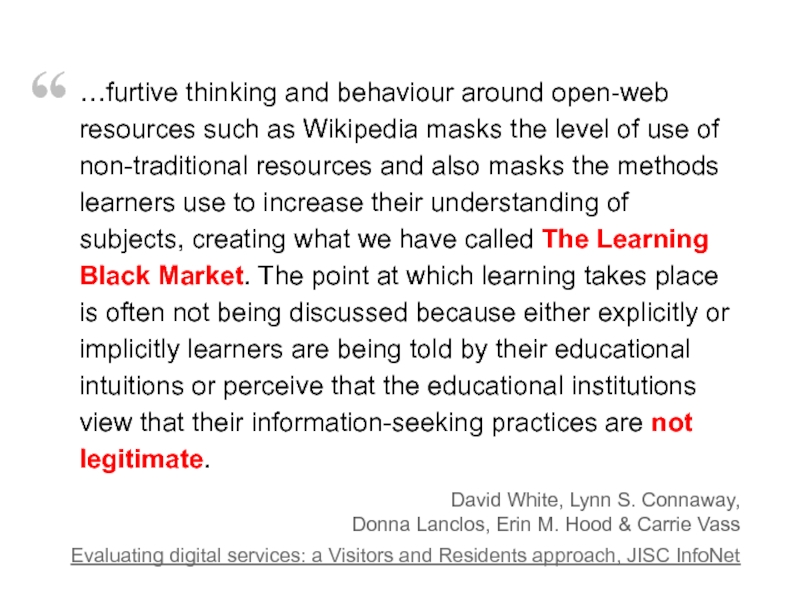
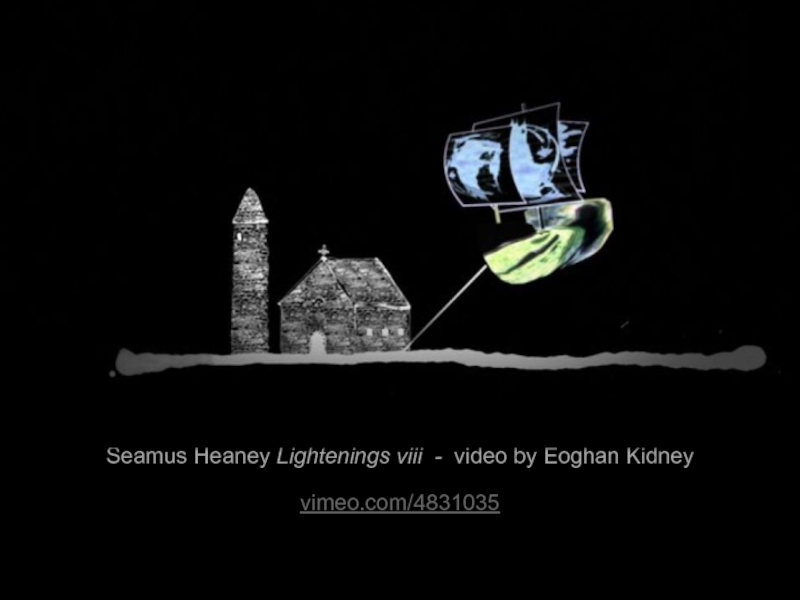
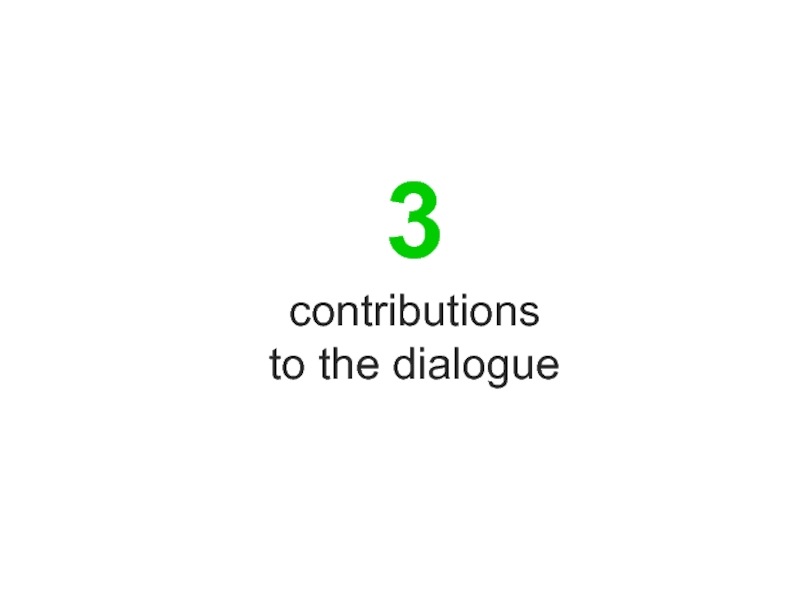

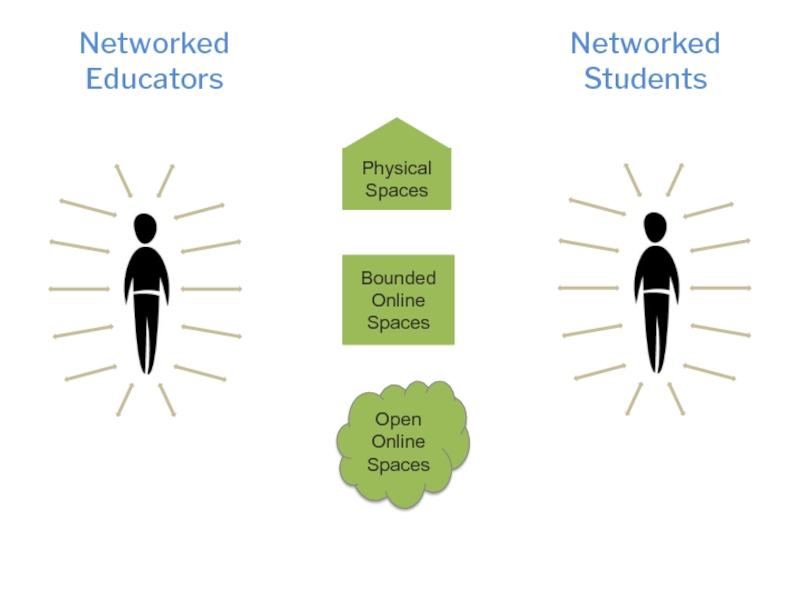
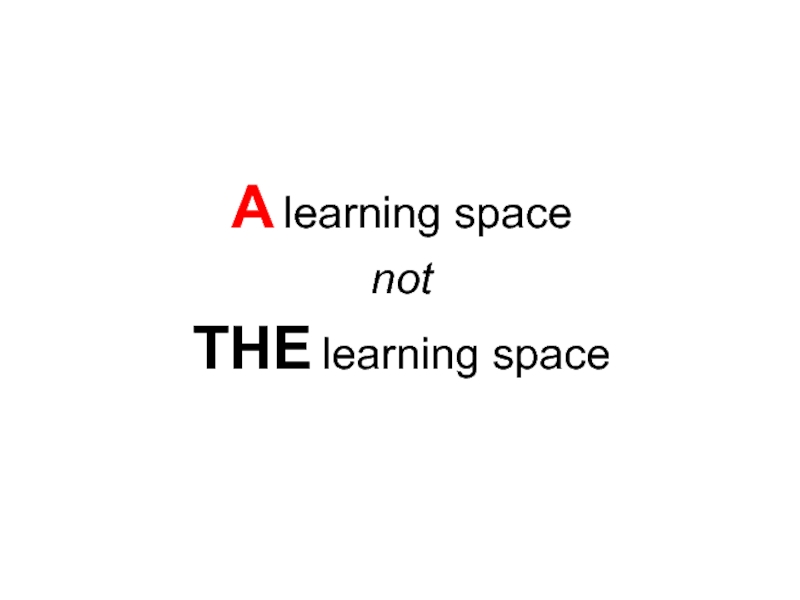

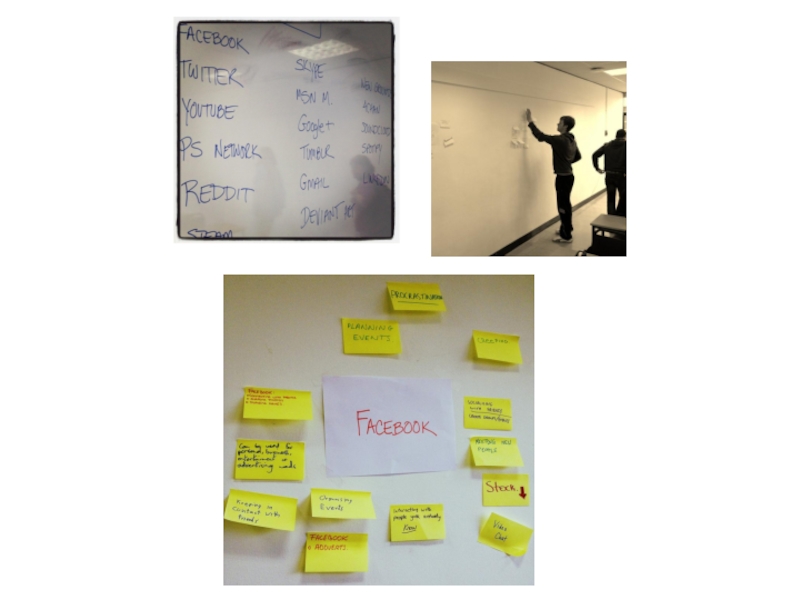
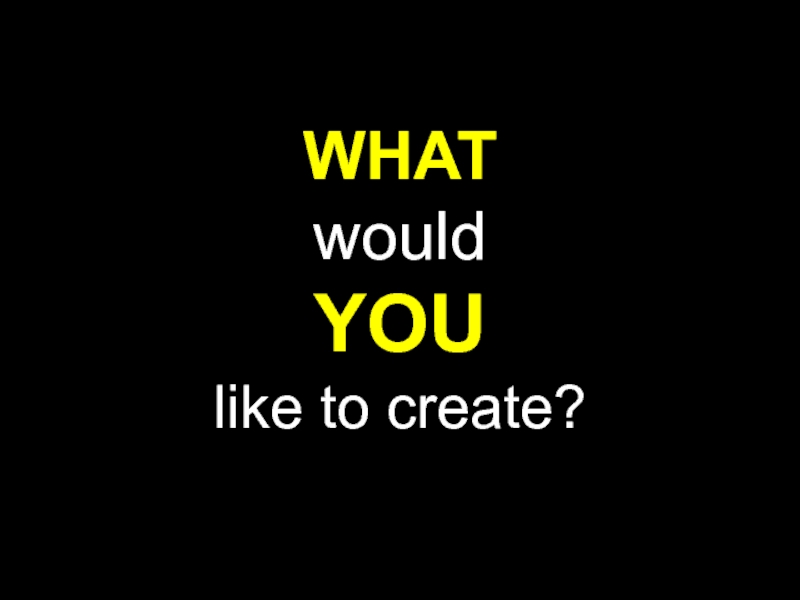
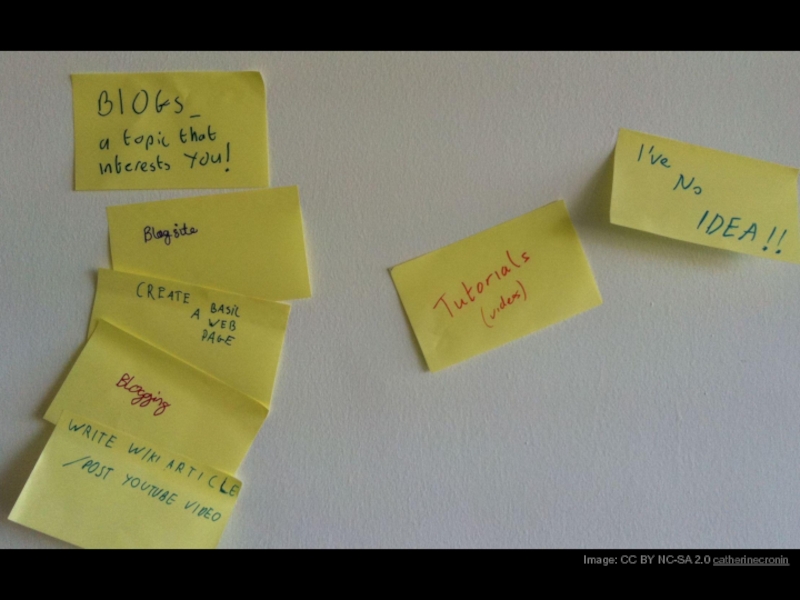
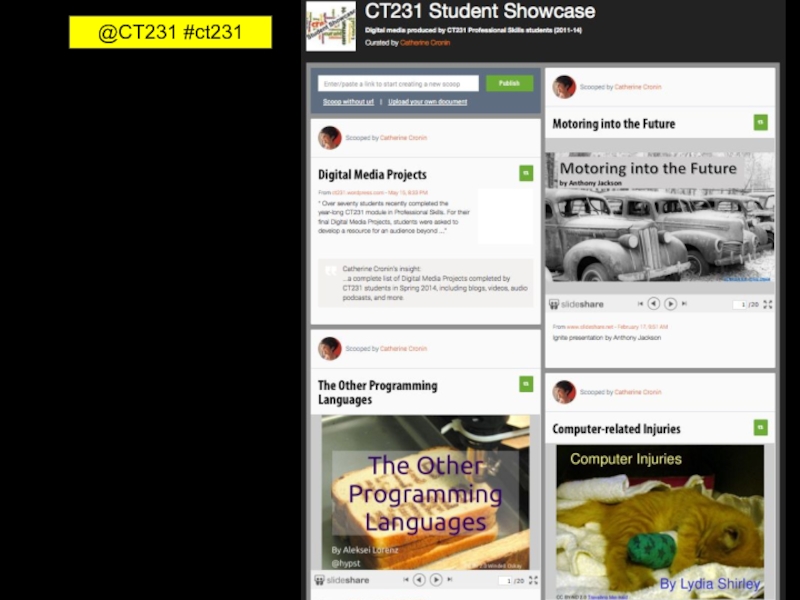
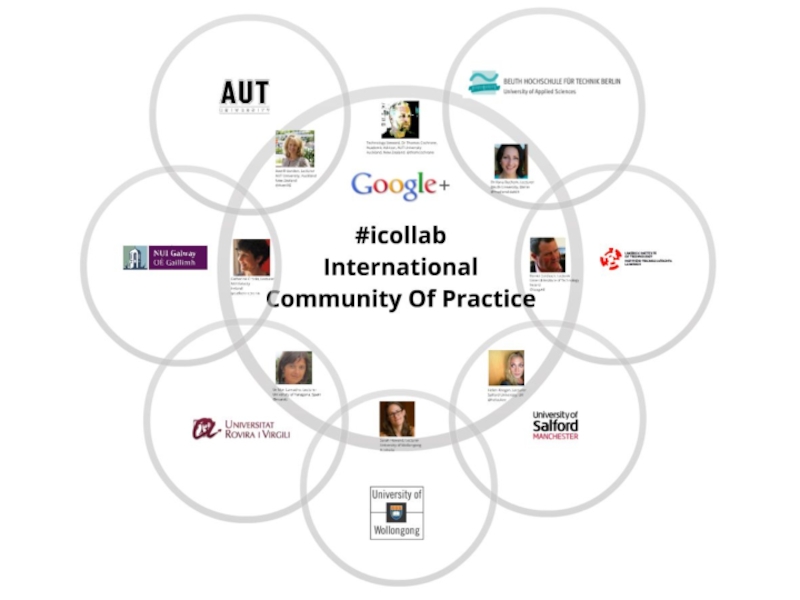
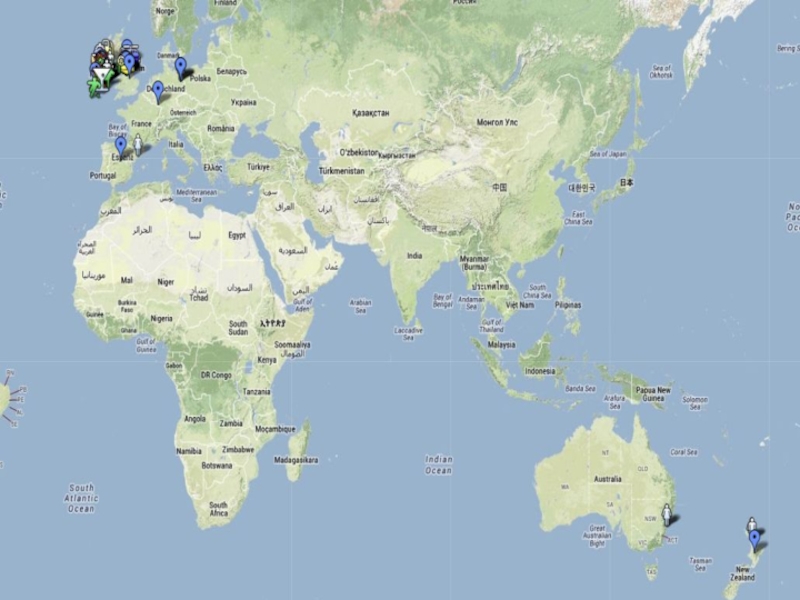
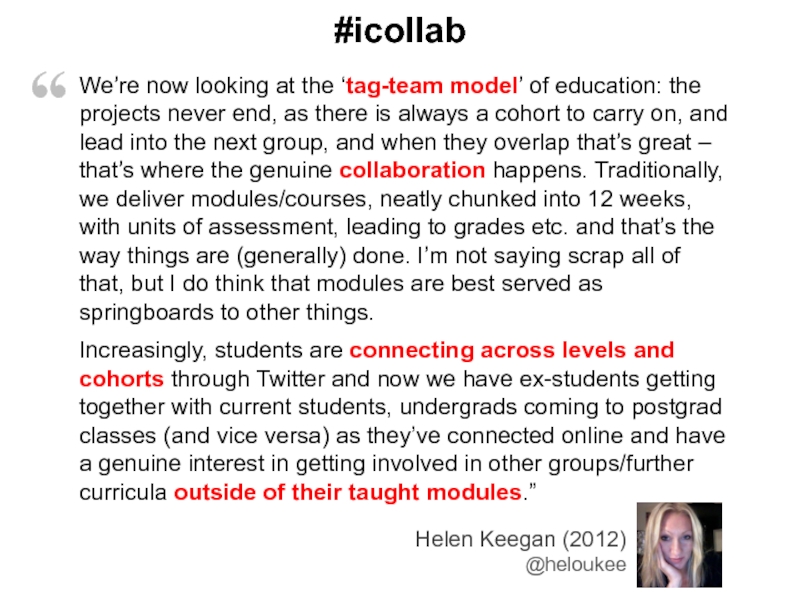
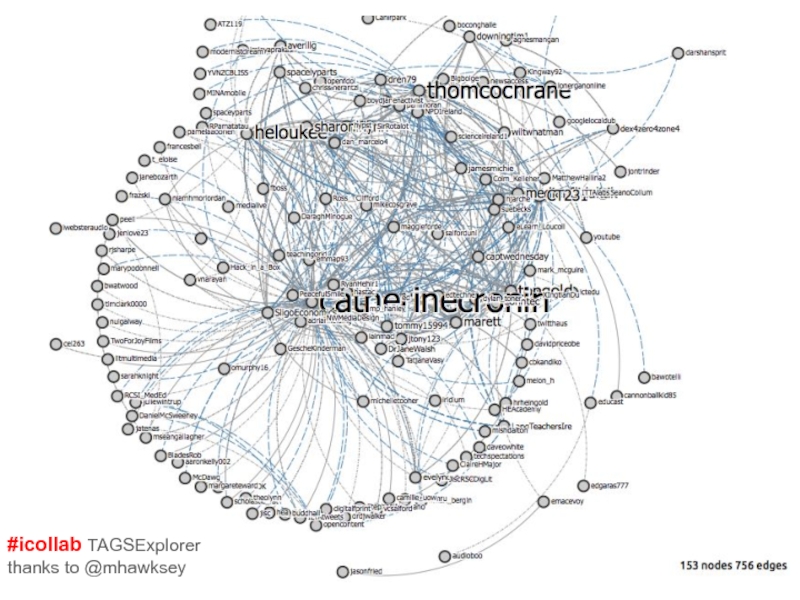
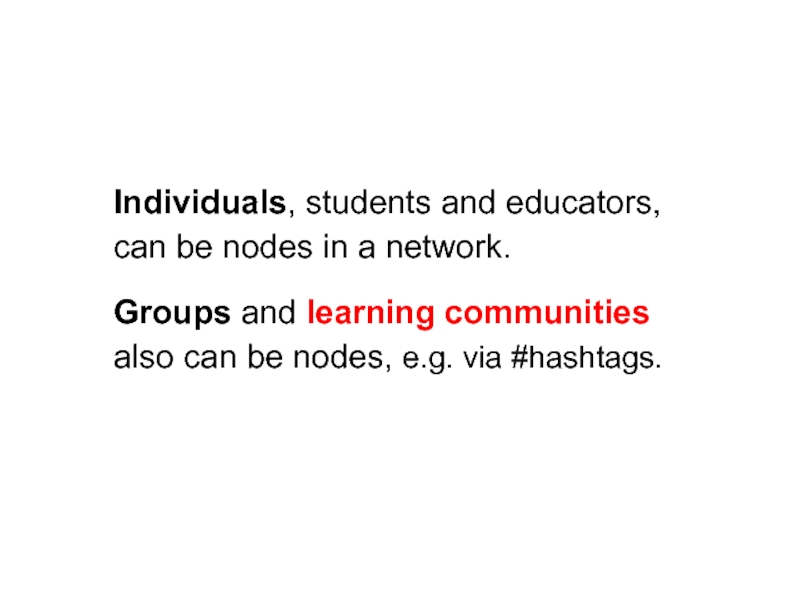
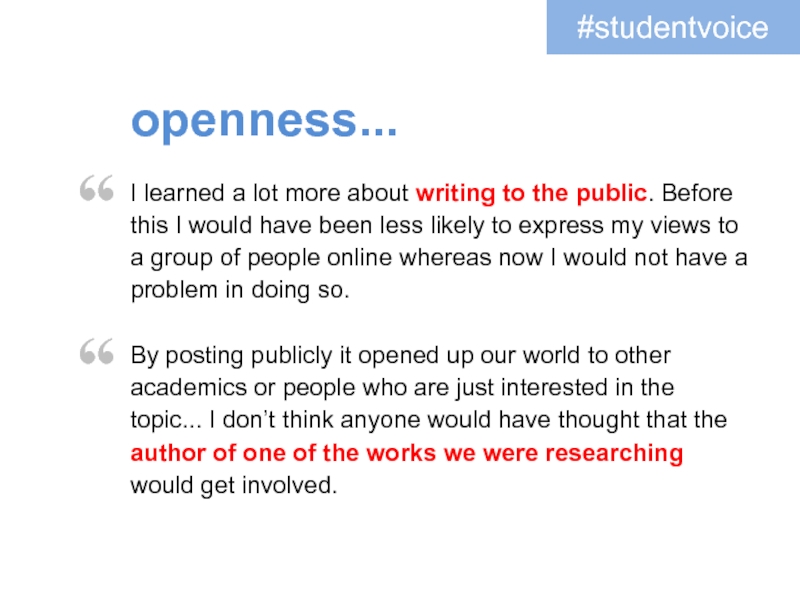
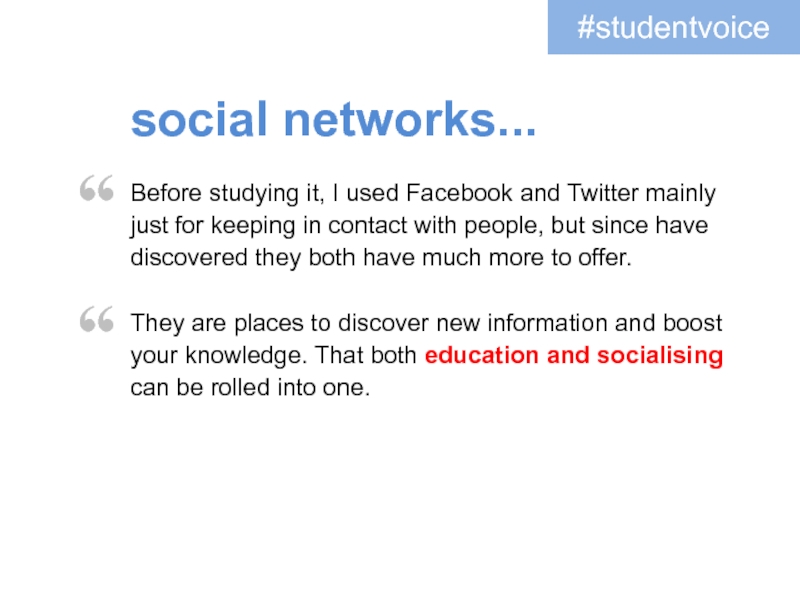
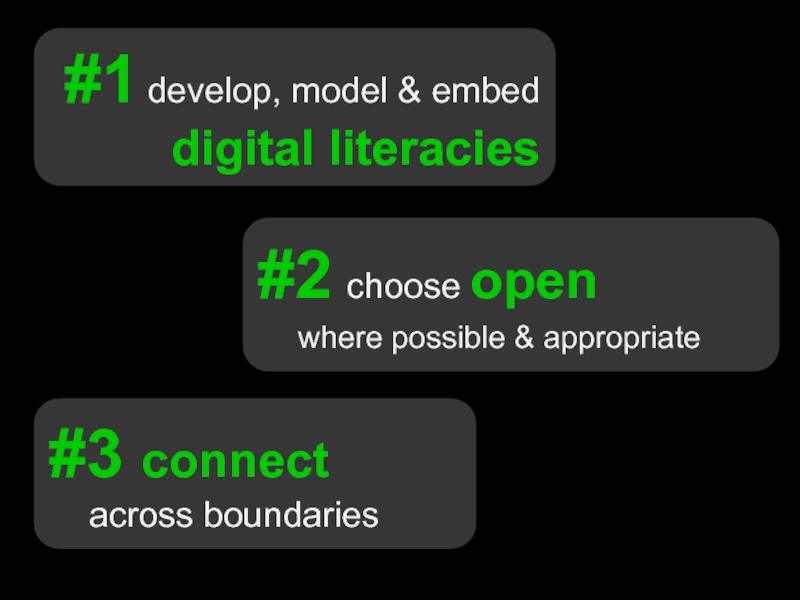
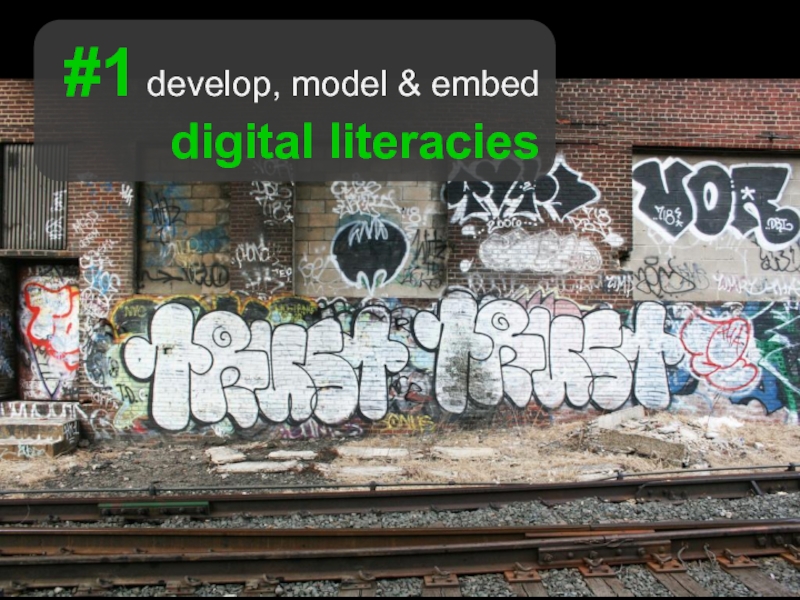
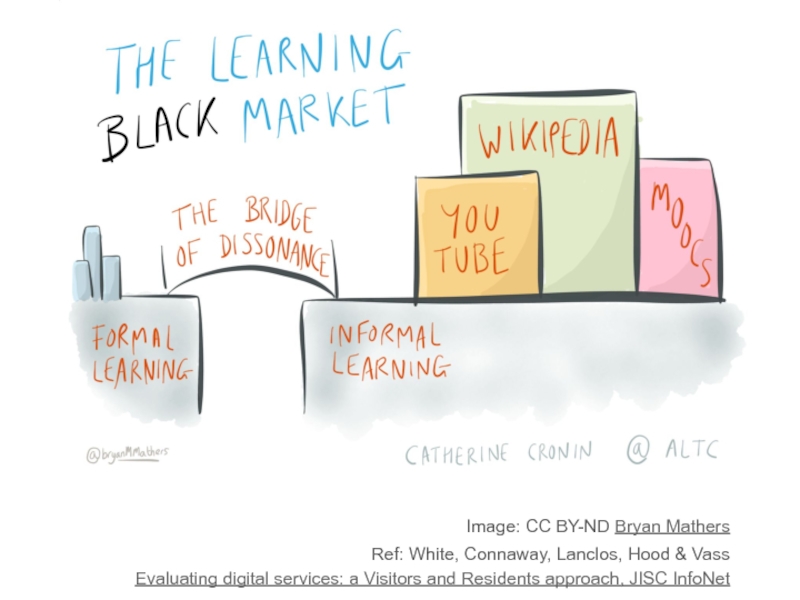
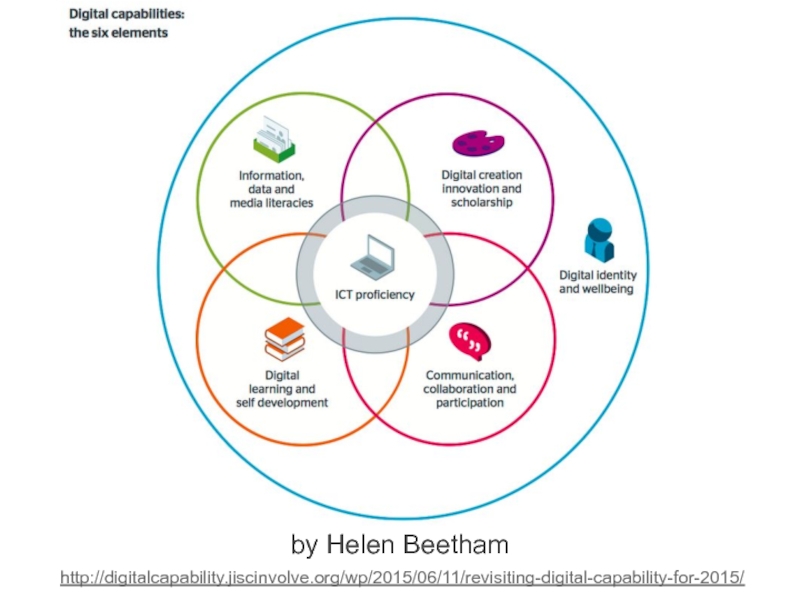

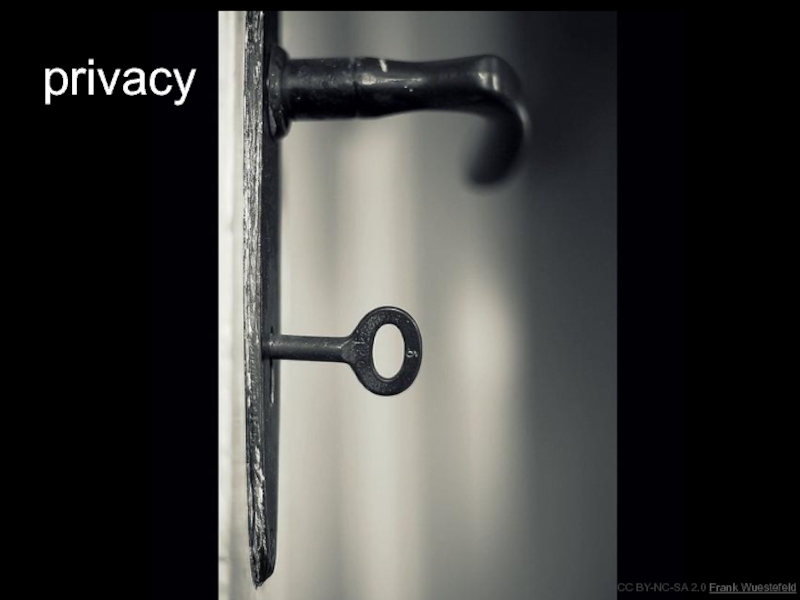
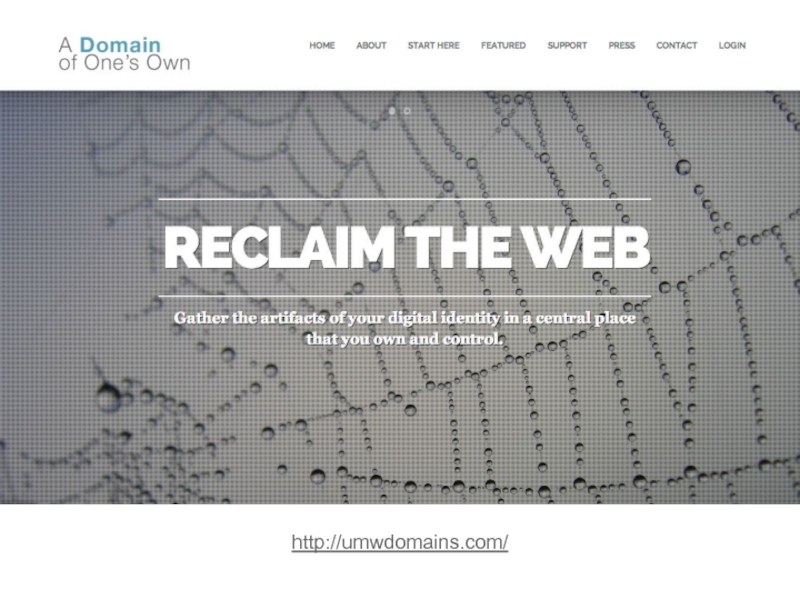
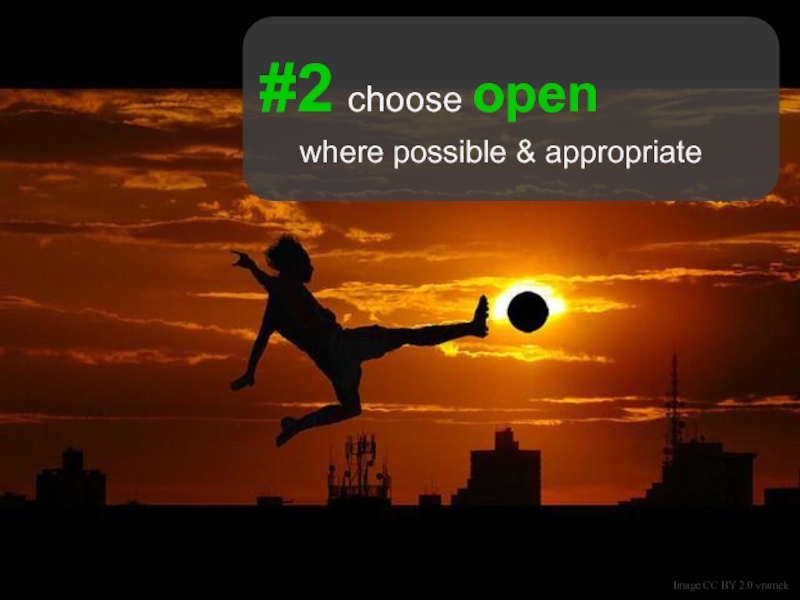
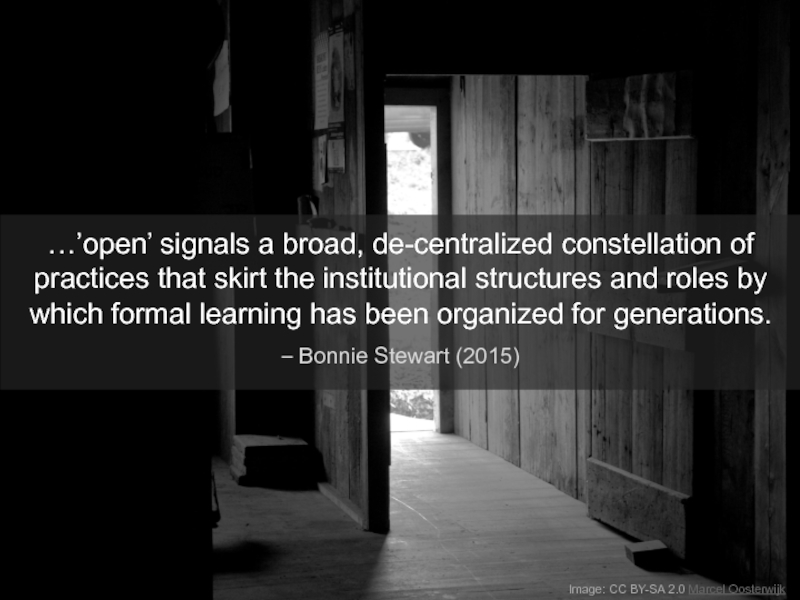
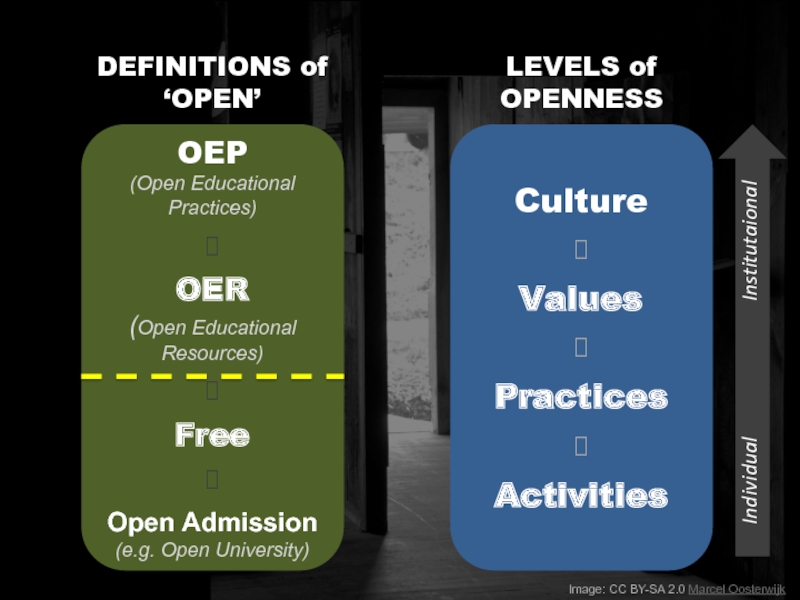
![Gardner Campbell – Ecologies of Yearning youtube.com/watch?v=kIzA4ItynYw Openness [is] process, not product after all. It’s](/img/tmb/1/4965/e5166fb2ed257313768835463beb7742-800x.jpg)

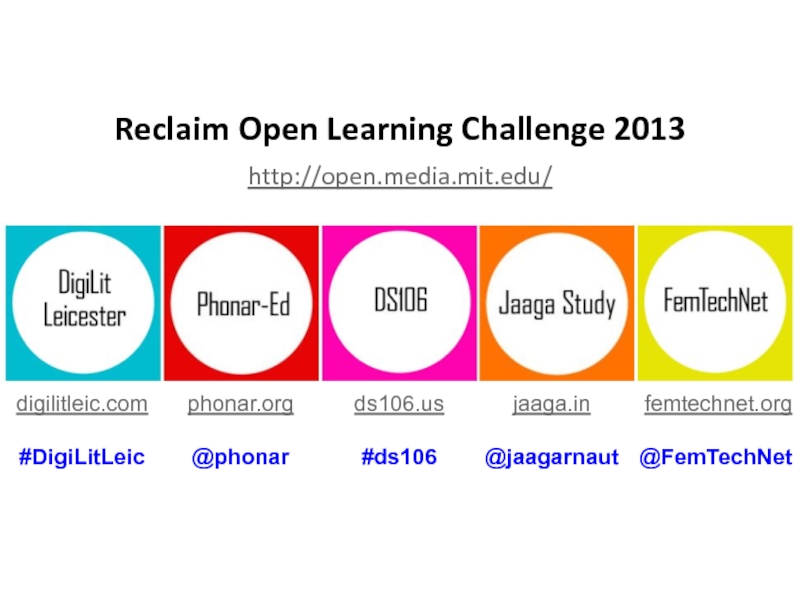
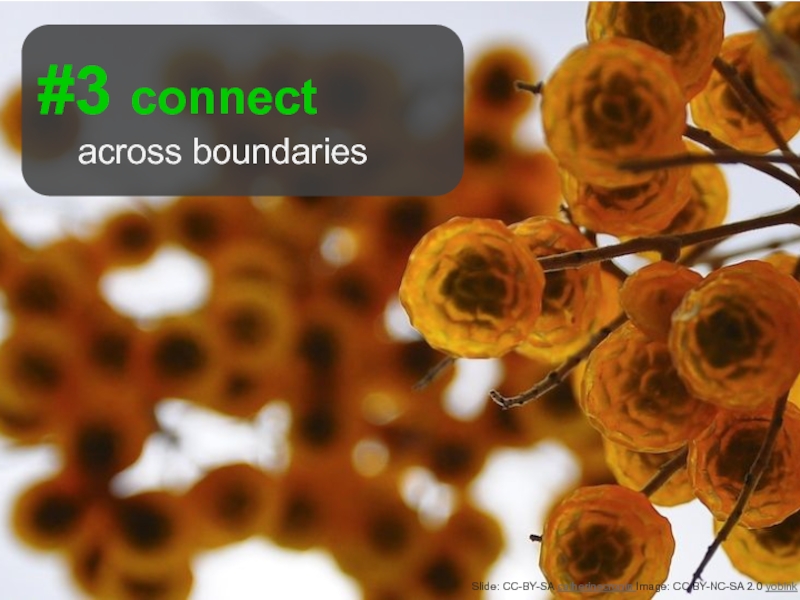
![“I don’t think education is about centralized instruction anymore; rather, it is the process [of]](/img/tmb/1/4965/f9b7fd1856482c3e0cb3f8446ce2295b-800x.jpg)

